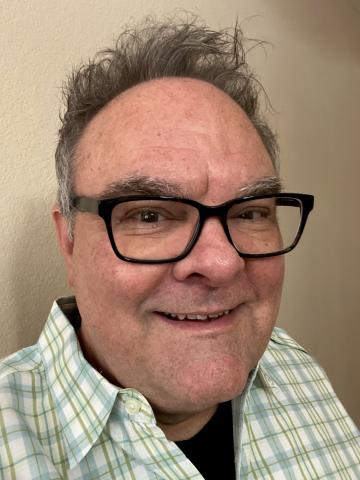ACUE Course: Moody College Faculty Share Tips and Takeaways
Published Summer 2023
The Association of College and University Educators (ACUE) Course in Effective Online Teaching Practices leads to a nationally recognized teaching credential in evidence-based practices. It is the only college teaching credential recognized by the American Council on Education.
At UT, the ACUE program is led by Dr. Anne Braseby and Dr. Michelle Gaston in the Center for Teaching and Learning. In 2022-2023, two professors from Moody College of Communication joined the cohort and shared in this interview some tips and takeaways from the course they just completed.
Read the reflections of professor Christian McDonald, from the School of Journalism and Media, and professor Mathew McCutchin, from the Stan Richards School of Advertising & Public Relations, about the ACUE course.

Can you describe the ACUE course? Why did you decide to apply?
Christian McDonald: Amy Sanders told me about it. She was one of my observers and in our talks, she was going through it, so when it came up again I signed up. It's an online course that is national in scope, but it's a UT cohort. There are probably 20 to 30 professors throughout the university from different colleges. It was set up in two semesters that pretty much followed fall and spring. Each semester was broken up into different modules and you would have weekly tasks and some videos that would explain some new concepts and things.
Matthew McCutchin: Even though I’ve taught full-time for many years, I came from an industry background and didn’t feel I knew enough about pedagogy. The class, however, is all about hands-on, applicable classroom techniques more than theory. I truly wished I’d taken this class years ago, in the first 3 years of teaching! Perhaps the biggest thing you will gain is the objective deep-dive you’ll take into your own teaching. And while not every module or technique will feel as directly applicable to your own classes, you will gain something new and useful from every one of them.
Christian McDonald: For example, they suggest you introduce a syllabus treasure hunt on the first day of class, or different ways to engage students. There were also online discussion boards, and we were expected to choose one of these techniques and implement it in our class. Every week, you would pick one of these ideas and try it in your course.
By the end of the week, I was required to write a reflection on what I did, how I did it, and they have like a template for you to fill out. I have all these reflections from every week. And the last module really got into Bloom’s taxonomy, on building your syllabus, course objectives, learning outcomes and tasks to support that, making sure you are using the right kind of lessons to meet that objective at the right level.

Can you give us an example of something you tried in your course?
Christian McDonald: I did a syllabus for cognizance and a reciprocal interview. So, I asked students to find the most important things they could in the syllabus and things that surprised them. And we had a reciprocal interview, as I interviewed them about those questions and they asked me questions about the class. It was really cool.
The ACUE course encourages these kinds of things, they really believe in class interaction, making people have better discussions and participate, giving them time to think and frankly, delivering less content. The idea that more is not better, and you need to reflect deeper. Equitable learning practices to make sure students aren't left behind, access to technology, tips and study guides to help students do better, like give them a skeleton and have them fill it out as they are going along.
I actually like to try different things like pair, compare and ask, or different ways to break up the lecture and have the students solve a problem. Don’t lecture for more than 10 minutes at a time, break up and talk about it or do something different.
My classes are very active, all my classes are already flipped, students are doing projects and learning. So this is a philosophy I was already part of it, but it was good to reflect upon and review some of your strategies, implement new ideas. They give you tons of materials and training, like ideas and lots of resources on how to do these things. I'm glad I have all these documents that I can go back and look at.
What is the biggest takeaway you took in this course that you may implement in your teaching?
Matthew McCutchin: There were so many useful techniques to implement that it’s hard to pick just one, but overall, I learned there’s always room to keep growing and learning, and something new to try. Also, I got a lot of validation that I was employing many good techniques already, but didn’t realize it, or know they had actual names. The course is definitely a confidence-builder.
Christian McDonald: Here is a takeaway that came from the course and I took for myself. “Those who do the work do the learning. If I do the work, they are not learning.” If I'm doing too much to help an assignment be successful, maybe I should be turning that to them to do, to prepare it so that they could learn that too. So it's trying to get me to do less, really, and give students a chance to work with something instead of regurgitating content, because they will not learn anything.

